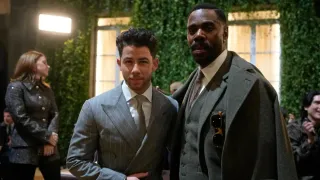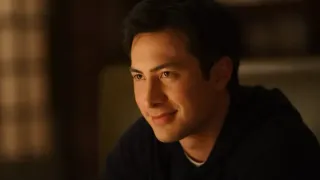April 9, 2025
Gianluca Antonelli Has Our Motor Skills Revving
Timothy Rawles READ TIME: 1 MIN.
We love a man who helps limber people up for a living. Gianluca Antonelli is an Italian doctor whose specializes in human movement and physical activity. We are glad he is helping people deal with their injuries through physical therapy.
Let's take a look at his biometrics. This flocked hunk is not shy about showing off his hot, hairy chest or dazzling blue eyes. We'd classify him as a daddy just because he has that authoritative, confident look that comes with being a more mature thirst trap.
Helping others recover from muscular aches and pains is truly praiseworthy. We would love a private consultation.






